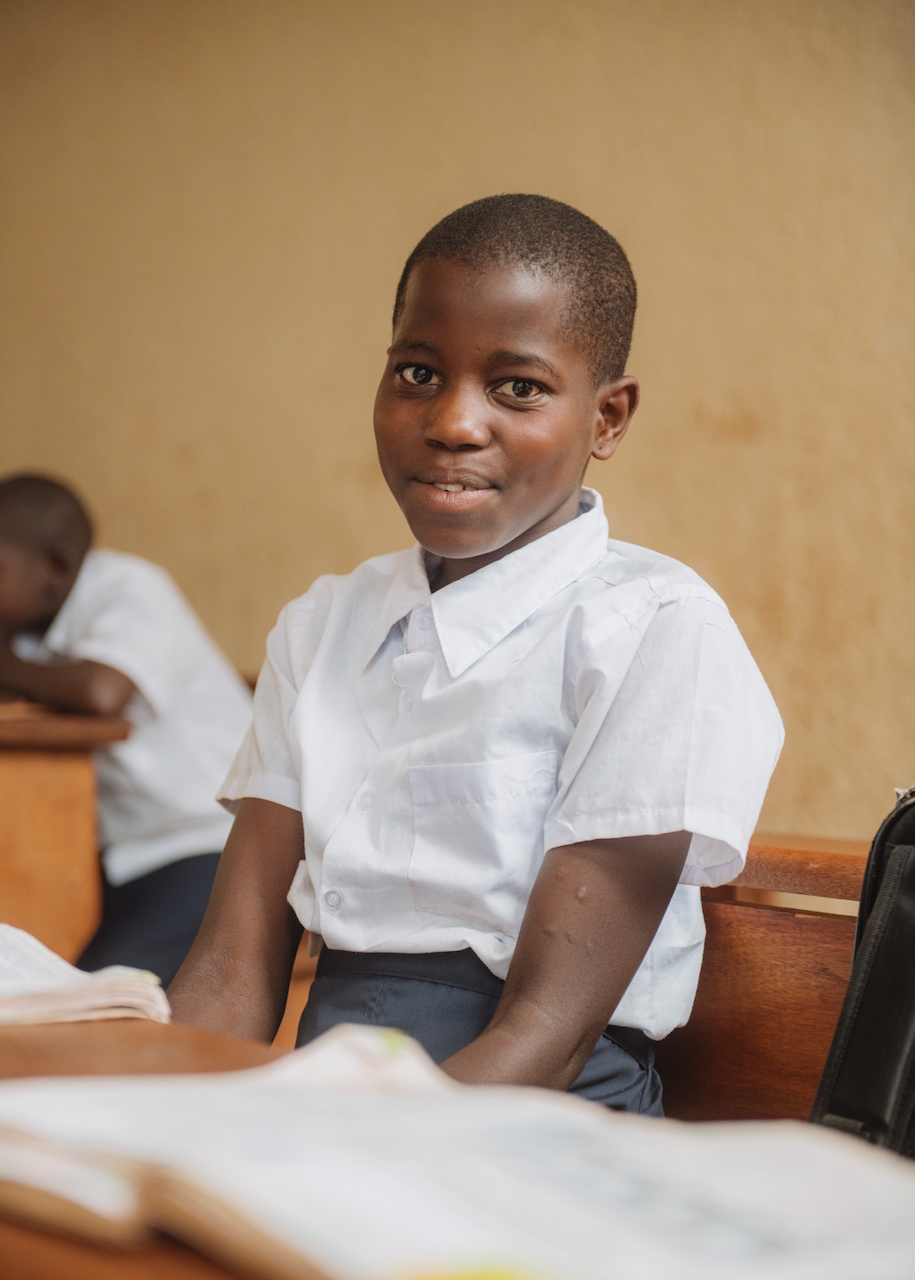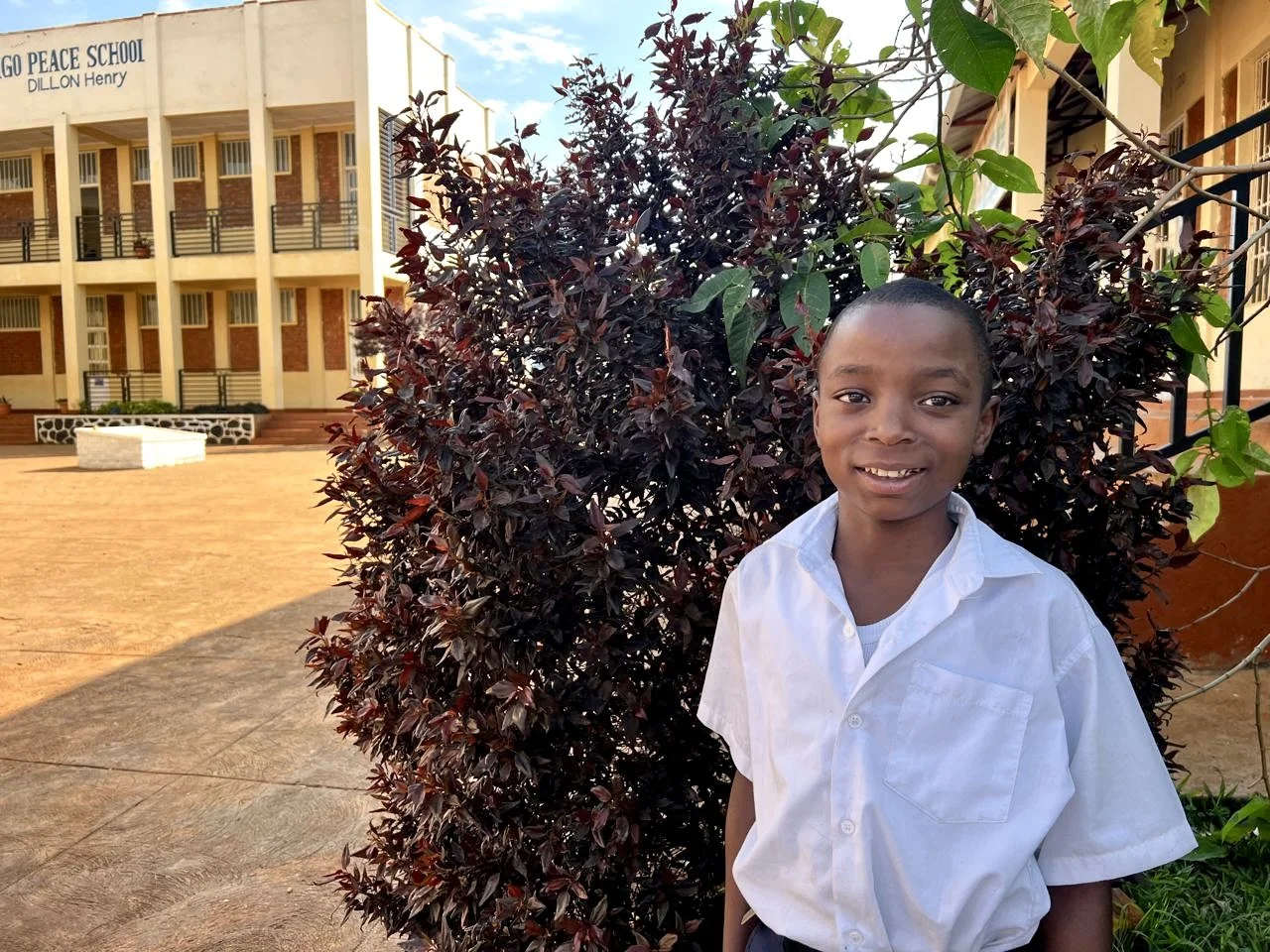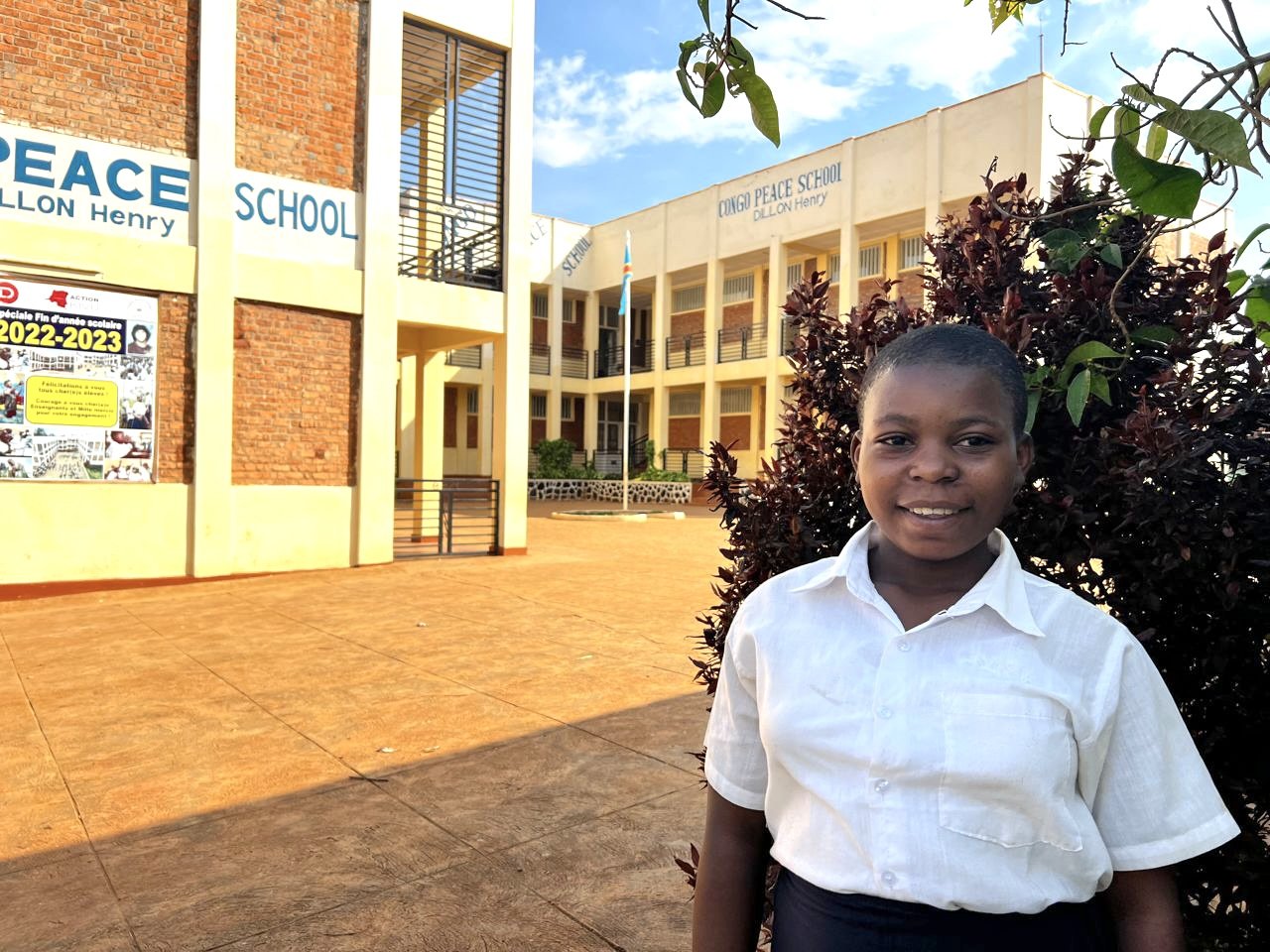Update from Congo Tuesday, March 11 2025, plus a podcast from Human Rights Watch that quickly and thoroughly sums up the history of the recent and current wars between Rwanda & Congo wars, and ways to use your voice (or keyboard) to help ring the alarm. Read on:
The Congo Peace School (CPS) is open and its activities have resumed as usual.
Clean water is running into the campus, burbling from the nearby reservoir through pipes and taps the community helped build and into the cups the students drink from. It’s filling the sinks and flush toilets that allow them a healthy day without the threat of cholera.The teachers and staff are trained in recognizing signs of trauma, and when a student needs care, there are counselors to visit, safe places to rest.
We learned of eight young children in the area - not CPS students - who have died from malnutrition, as their families’ sources of food and small amounts of income were looted by soldiers from all sides of the conflict as they moved through the villages, and we will be assessing how we can provide food and resources.
Yet another challenge from the M23’s invasion is the soaring cost of food and supplies. Humanitarian aid is being restricted along many routes. Humanitarian aid itself has also been decimated by the Trump administration canceling of many USAID contracts and firing staff, ending the jobs of the people responsible for ensuring the most vulnerable among us have access to food, medical supplies, vaccines, malaria treatments, the list goes on and on. Additionally, the various factions of fighters all looted food and small businesses as they ravaged the land.
The Congo Peace School and Amani’s nonprofit ABFEC staff are assessing what is available to eat from the school’s farm and the community farm that Action Kivu supports outside the school budget. That farm also acts as the teaching farm for the students as well as providing plots of land for community members to grow their food. Over the years, it has expanded from growing cabbage and other vegetables to raising tilapia fish in three small ponds, as well as training staff in animal husbandry to provide manure to enrich the soil. In a few weeks time, there will be enough cabbages harvested to feed the school’s population for two weeks.
The fact that everyone is finding creative ways to support each other and continue providing this world-changing education rooted in peace and nonviolence is a testament to the shared belief in the mission of the school. Together we can create peace within ourselves, our classrooms, our communities, our cities, and our countries. We can lead with love and respect for every person, regardless of where they were born, the color of their skin, or how much money they have.
You are a part of this. Thank you.
Boats are once again traversing Lake Kivu, and the school staff is talking with suppliers about how much bulk food will be available for purchase and what the cost is now.
UN update: This afternoon (11 March), Security Council members met in closed consultations to discuss the situation in eastern Democratic Republic of the Congo (DRC). France, the penholder on the file, requested the meeting. Under-Secretary-General for Peace Operations Jean-Pierre Lacroix is expected to brief Council members on his 27 February-1 March visit to the DRC, where he engaged with Congolese authorities on the security situation in eastern DRC. His visit also included discussions on ongoing diplomatic and political efforts aimed at achieving an immediate cessation of hostilities in North Kivu and South Kivu provinces. Lacroix’s visit followed the adoption on 21 February of Security Council resolution 2773, which demanded the immediate cessation of further military advances by the Mouvement du 23 Mars (M23) rebel group and called for an immediate and unconditional ceasefire. (Read the full release here.)
It is maddening to not be able to stop the violence, but we are not helpless. Please continue to share stories with your circles of friends and colleagues, and can ring the alarm bell to amplify the voices of the people of Congo (and Rwanda) who do not want war, but want to live peacefully as neighbors.
This Human Rights Watch podcast entitled Congo: The Real-Life 'Vibranium' Wars, March 10 2025 is excellent, concisely hitting key points of the history of the current conflict and wars between Rwanda and Congo, and a great one to share with folks who know little about the current conflict. It notes that “in May last year, the M23 seized control of the Rubaya mine, one of the world's largest deposits of coltan.” Lewis Mudge, the Associate Africa Director at Human Rights Watch, stated: “They're carving out roads from Rubya straight into Rwanda.”
If you read a report or story that does not mention the role played by conflict minerals / critical minerals, you can send a letter to the editor, and reference points from this Reuters piece. It was reported in late January 2025, and since then, M23 has also taken Bukavu, South Kivu, and territory in and around mining concessions throughout North and South Kivu. If you look at the following map detailing the minerals in different areas of eastern Congo, and then look at the areas Rwandan-backed M23 fighters have taken or are fighting in, the strategy is clear.
List of cities / territories the M23 has taken control of / is currently fighting in, as of 11 March 2025
The Rubya mine is already under control of the M23 and they are exploiting coltan there.
The Luwowo mine is near the Rubaya mine and it is under control of M23.
In the Kalehe territory (South Kivu) the M23 has control of the Numbi mine and the region’s secondary mines such as (Fungamwaka, Lumbishi, Ngungu, Misumari). They are exploiting coltan as well as tourmaline (a rare gemstone)
The Kalimbi tin mine is in South Kivu, in the Kalehe territory near Nyabibwe, and is under control by the M23.
In the Walungu territory, M23 made a quick move to the Mukungwe and Nyamurhal gold mines; they are still fighting. On Sunday (March 9th) several people were killed by M23 in Walungu. As of Monday (March 10) M23 has taken control of the city of Nyabyondo, in the Walikale territory known for the abundance of critical minerals including tin, tungsten, tantalite, gold, and lithium. Walungu is on the way to the Mwenga territory, known for its abundant reserves of gold.
On Monday (March 10th) M23 advanced to Kaziba where there is a huge gold company nearby called Twangiza gold mine, they are still fighting over there.
The road to Uvira is not only to control the city but to make an easy move to the Fizi territory in order to control several gold mines there.
Call your representatives. Governments are starting to put pressure on the Rwandan government to stop funding M23. Encourage them to keep doing so. Demand a ceasefire and peace talks. The Congolese government needs to be held accountable for its years of poor governance for its people as well. The people of Congo deserve free education, paid work, working roads, healthcare, and clean water. This is a time to stand for and speak up to power for the people of Congo. In the U.S., you can find your representatives here: https://www.congress.gov/members/find-your-member
Share stories: Remind friends and colleagues that these kids are who we are fighting for, for these children to grow up safely and be our future leaders, emboldened with the knowledge of and practice in nonviolence, equality, and healing from trauma.
In that HRW podcast, the host's father is one of the Congolese people he speaks to, and it is heartbreaking to hear him reflect on how many people have died from the wars in Congo (over six million) and that "nobody in the world – excuse me the word - gives a damn. Nobody cares."
Thank you for caring, and your ongoing commitment for peace in Congo, Africa, and our world. If you'd like to support Action Kivu's work in creating safe spaces for equality, nonviolence, and peace education to take root, please donate here.














































